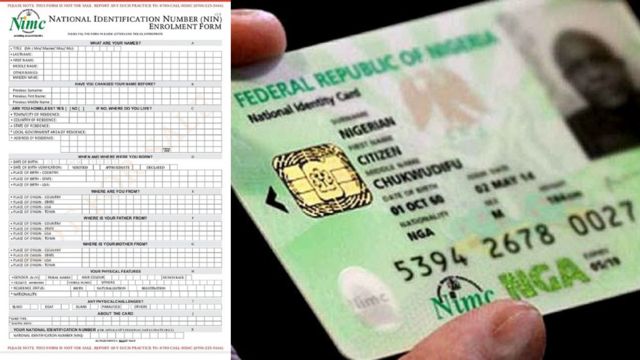What Is Trade Test All About | A Guide to Trade Tests in Nigeria
Are you interested in pursuing a career in trade in Nigeria? Understanding the ins and outs of trade tests is crucial. Read on to learn about the different types of trade tests, how to obtain them, and their importance in the industry. Get all the information you need about trade tests in Nigeria in this comprehensive guide.
Trade tests are an essential aspect of skilled trades, providing an opportunity for individuals to showcase their expertise in a particular trade. A trade test assesses the practical skills and knowledge of individuals in a specific trade, ensuring they possess the necessary skills to perform their job effectively. In this article, we will explore what trade tests are all about and how they play a crucial role in various industries.
What Is a Trade Test?
A trade test is a practical examination that assesses the practical skills and knowledge of individuals in a particular trade. The test is designed to evaluate the candidate’s ability to perform tasks and solve problems that are typical of their chosen profession. Trade tests are used to determine the competency of individuals in their chosen trade and are typically administered by an independent organization or government agency.
How Many Types of Trade Tests Does Nigeria Have?
In Nigeria, there are three types of trade tests: Basic, Advanced, and Master. Here is an explanation of each type:
- Basic Trade Test: The Basic trade test is designed for entry-level workers and measures their ability to perform basic tasks in their chosen trade. Candidates who pass the Basic trade test are awarded a Basic National Technical Certificate (NTC).
- Advanced Trade Test: The Advanced trade test is for more experienced workers who have completed a higher level of education or training in their trade. This test measures the candidate’s ability to perform more complex tasks and solve technical problems. Candidates who pass the Advanced trade test are awarded an Advanced National Technical Certificate (ANTC).
- Master Craftsperson Trade Test: The Master Craftsperson trade test is the highest level of trade test available in Nigeria. It is designed for those with a high level of skill and experience in their trade and measures their ability to perform advanced and complex tasks. Candidates who pass the Master Craftsperson trade test are awarded a National Technical Certificate (NTC) in their trade.
Why Are Trade Tests Necessary?
Trade tests are necessary to ensure that individuals who work in skilled trades possess the necessary knowledge and skills to perform their jobs effectively. Trade tests help to establish a minimum standard of competency for individuals working in a specific trade, ensuring that they can provide high-quality work and meet industry standards. By ensuring that individuals possess the necessary skills and knowledge, trade tests help to improve safety, reduce errors, and increase productivity in the workplace.
Who Needs to Take a Trade Test?
Individuals who work in skilled trades typically need to take a trade test to obtain a certification or license. The specific trades that require a trade test vary by jurisdiction, but common examples include electricians, plumbers, carpenters, and welders. In some cases, a trade test may be required for entry-level positions, while in other cases, it may be required for advanced positions or promotions.
What Does a Trade Test Consist of?
The content and structure of trade tests vary depending on the specific trade and the jurisdiction. However, most trade tests consist of a written and practical component. The written component assesses the candidate’s knowledge of the trade, while the practical component evaluates the candidate’s ability to perform tasks that are typical of their chosen profession.
How to Prepare for a Trade Test?
Preparation for a trade test typically involves a combination of education, training, and practical experience. Candidates can enroll in trade schools or apprenticeships to receive formal education and training in their chosen trade. Additionally, they can gain practical experience by working in the field or participating in hands-on training programs.
Requirements for trade test in Nigeria
- Minimum Age: Candidates must be at least 16 years old to take a trade test in Nigeria.
- Educational Qualifications: Depending on the trade, candidates may need to possess certain educational qualifications to take the trade test. For example, a secondary school certificate may be required for some trades, while others may require a diploma or degree in a related field.
- Training: Candidates may need to undergo formal training in their chosen trade before taking the trade test. This training can be obtained through apprenticeships, vocational schools, or on-the-job training.
- Experience: In addition to formal training, candidates may need to have practical experience working in their chosen trade before taking the trade test.
- Registration: Candidates must register with the appropriate agency or organization responsible for administering the trade test in their jurisdiction.
- Fees: Candidates may need to pay a registration fee to take the trade test. The fees may vary depending on the trade and jurisdiction.
- Valid ID: Candidates must provide valid identification, such as a national identity card or passport, to take the trade test.
How to obtain trade test in Nigeria
To obtain a trade test in Nigeria, follow these general steps:
- Choose a Trade: First, decide on the trade you wish to obtain a trade test. Trades that require trade tests in Nigeria include electrical installation, plumbing, welding, carpentry, and others.
- Obtain Relevant Education and Training: Before you can take a trade test, you will need to obtain the relevant education and training for your chosen trade. This can be achieved through vocational schools, apprenticeships, or on-the-job training.
- Gain Practical Experience: In addition to formal education and training, you will need to gain practical experience in your chosen trade. This can be achieved through internships, apprenticeships, or on-the-job training.
- Register for the Trade Test: Once you have obtained the necessary education, training, and experience, you can register for the trade test with the appropriate agency or organization responsible for administering the trade test in your jurisdiction.
- Pay the Required Fees: You may be required to pay a registration fee to take the trade test. The fees may vary depending on the trade and jurisdiction.
- Prepare for the Trade Test: Before taking the trade test, prepare adequately by reviewing relevant materials, practicing practical skills, and seeking guidance from experts in your chosen trade.
- Take the Trade Test: On the day of the trade test, arrive early, and bring all necessary identification documents. The trade test may consist of a written exam, a practical exam, or both.
- Obtain the Trade Test Certificate: Once you have successfully passed the trade test, you will be awarded a trade test certificate. This certificate confirms your competency in your chosen trade and may be required by employers or regulatory bodies in your industry.
All You Need to Know About Trade Tests in Nigeria
A trade test is a certification program that verifies the competency and skill level of individuals in a particular trade. In Nigeria, trade tests are administered by the National Business and Technical Examinations Board (NABTEB), a government agency responsible for overseeing technical education in the country. Here is all you need to know about trade tests in Nigeria:
- Trades Covered: Trade tests are available for a wide range of trades, including electrical installation, plumbing, welding, carpentry, masonry, and more.
- Levels of Trade Tests: There are three levels of trade tests in Nigeria: Basic, Advanced, and Master. The Basic level is for entry-level workers, while the Advanced level is for more experienced workers. The Master’s level is for those with the highest level of skill and experience in their trade.
- Eligibility: To be eligible for a trade test in Nigeria, candidates must be at least 16 years old and possess the necessary education, training, and experience in their chosen trade.
- Registration: Candidates must register for the trade test with NABTEB or an approved NABTEB examination center. Registration fees vary depending on the trade and the level of the trade test.
- Exam Format: The trade test consists of a practical and a written exam. The practical exam assesses the candidate’s hands-on skills in their trade, while the written exam tests their theoretical knowledge.
- Grading: Trade test results are graded on a scale of A to D, with A being the highest grade and D the lowest.
- Certification: Successful candidates are awarded a trade test certificate, which serves as evidence of their competency in their trade. The certificate is valid for five years and can be renewed upon expiration.
- Importance: Trade test certification is highly valued by employers and regulatory bodies in Nigeria. It is a prerequisite for employment in certain trades and is often required for licensing and registration with professional bodies in the industry.
In summary, trade tests in Nigeria are an important certification program that verifies the competency and skill level of individuals in a particular trade. Candidates must possess the necessary education, training, and experience and pass both practical and written exams to obtain a trade test certificate. This certification is highly valued in the industry and serves as evidence of competency and professionalism.
Frequently Asked Questions (FAQs)
Here are some frequently asked questions (FAQs) about trade tests in Nigeria:
What is a trade test?
A trade test is a certification program that verifies the competency and skill level of individuals in a particular trade.
Who administers trade tests in Nigeria?
Trade tests are administered by the National Business and Technical Examinations Board (NABTEB), a government agency responsible for overseeing technical education in the country.
What trades are covered by trade tests in Nigeria?
Trade tests are available for a wide range of trades, including electrical installation, plumbing, welding, carpentry, masonry, and more.
What are the levels of trade tests in Nigeria?
There are three levels of trade tests in Nigeria: Basic, Advanced, and Master.
How do I register for a trade test in Nigeria?
Candidates must register for the trade test with NABTEB or an approved NABTEB examination center. Registration fees vary depending on the trade and the level of the trade test.
What is the format of the trade test in Nigeria?
The trade test consists of a practical and a written exam. The practical exam assesses the candidate’s hands-on skills in their trade, while the written exam tests their theoretical knowledge.
How are trade test results graded?
Trade test results are graded on a scale of A to D, with A being the highest grade and D the lowest.
What happens if I pass the trade test?
Successful candidates are awarded a trade test certificate, which serves as evidence of their competency in their trade. The certificate is valid for five years and can be renewed upon expiration.
How important trade test certification in Nigeria?
Trade test certification is highly valued by employers and regulatory bodies in Nigeria. It is a prerequisite for employment in certain trades and is often required for licensing and registration with professional bodies in the industry.
How often can I take a trade test?
Candidates can take a trade test as often as they like, but they must pay the registration fee each time they take the test.









